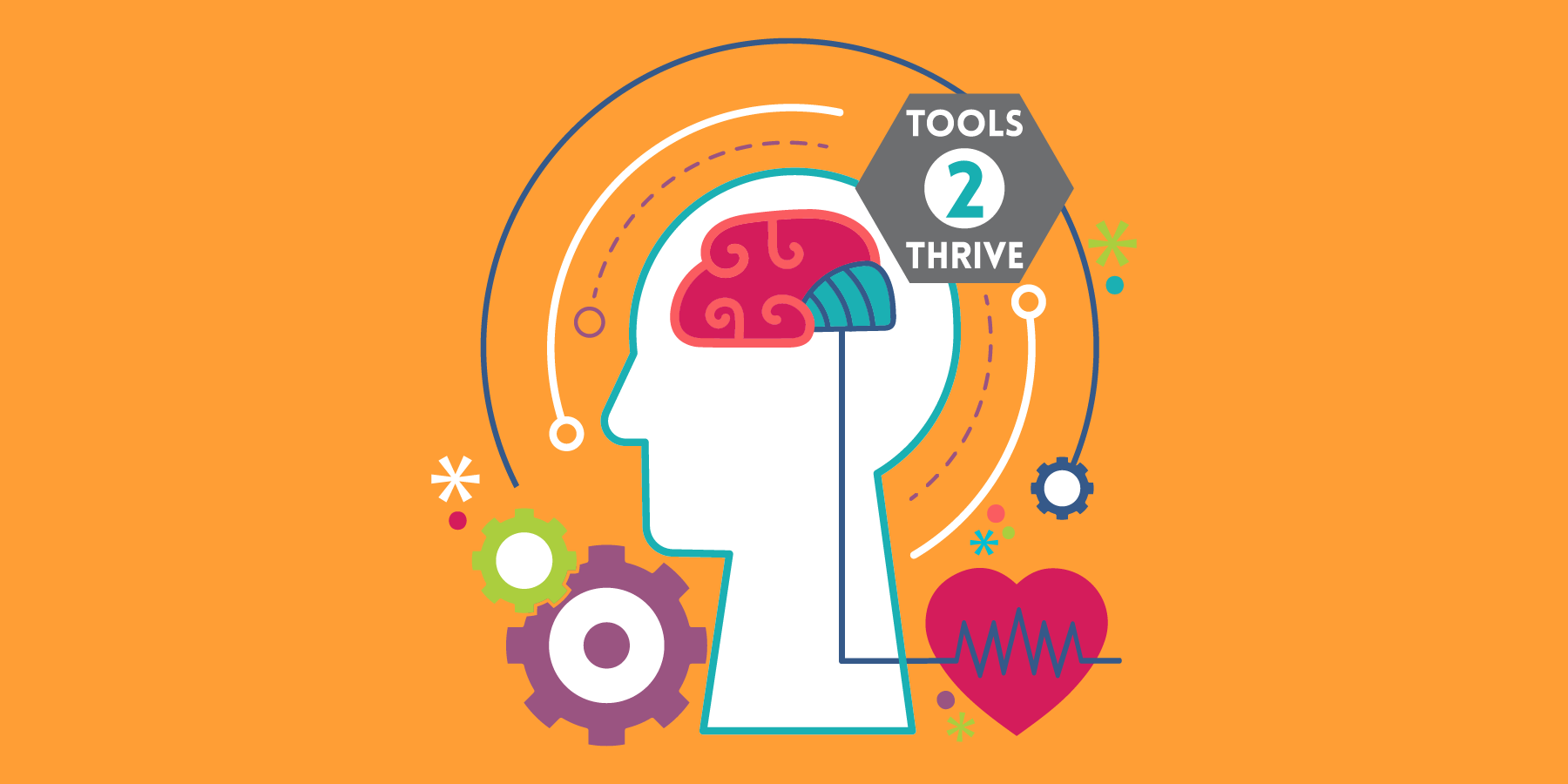Your Mental Wellness: Things to Know, Tools 2 Thrive
Posted in:TeensMen’s HealthWoman’s HealthYour Growing Child
Share:

During Mental Health Awareness Month last May, the world was in the grips of the pandemic. For months afterward, many mental health discussions focused on COVID-19-related issues, such as feelings of isolation, loneliness, and depression; anxiety, uncertainty, and fear; and the stress of juggling work-from-home, school-from-home, and keeping safe from the virus. As we celebrate Mental Health Awareness Month 2021, many of those same concerns still exist. Plus, as our community slowly opens back up, adapting to the “new normal” can create its own strain on mental health. Pandemic or not, our world — your world — will always contain influences that can put your mental well-being at risk.
While this may sound a little scary, remember that almost everyone has the ability to stand up against forces trying to threaten mental stability and create a physical and emotional environment that nurtures wellness throughout their lives. The first step, as the name Mental Health Awareness Month indicates, is awareness — being able to recognize when you may be struggling with mental health. So, in the spirit of the 2021 theme set by Mental Health America’s Tools 2 Thrive, we’re giving you some tools to make you more aware of when there may be cause for concern. This will give you a strong starting point for helping to prevent problems from escalating into situations that can seriously impact emotional and even physical wellness — for you or someone you love.
Common signs in adults and adolescents. While there are many types of mental illnesses — each with some unique signs and symptoms — there are general warning signs that may indicate you or another adult/adolescent has or is at risk of having a mental illness. Below are some common ones provided by the National Alliance on Mental Illness (NAMI):
- Feeling sad or withdrawn for more than two weeks
- Severe mood swings that cause problems in relationships
- Intense worries or fears that get in the way of normal activities
- Sudden, overwhelming fear for no reason
- Seriously trying to harm or kill oneself, or making plans to do so
- Using medications or other unhealthy behaviors to lose weight
- Significant weight loss or weight gain
- Engaging in severe, out-of-control, and risky behaviors that can cause harm to oneself or others
- Repeated use of drugs or alcohol
- Drastic changes in behavior, personality, or sleeping habits
- Extreme difficulty concentrating, staying still, or understanding or relating to other people
Common signs of mental illness in children. According to the Centers for Disease Control and Prevention, one in five children has a serious mental health disorder, and half of all long-lasting mental illnesses start by the time a person is 14 years old. The following list provides a few common signs. For more resources that support Delaware children, visit kids.delaware.gov.
- Changes in performance at school
- Excessive worry or anxiety
- Hyperactive behavior
- Frequent nightmares
- Often not obeying adults/rules or being aggressive
- Frequent temper tantrums or “acting out”
If you recognize one or more signs of a potential mental health concern in yourself or a loved one, talk to someone immediately. Ask someone you trust for guidance or connect with a professional for help — including those available 24/7 by phone and online through Help Is Here Delaware.